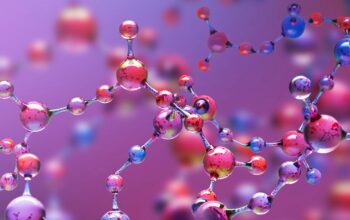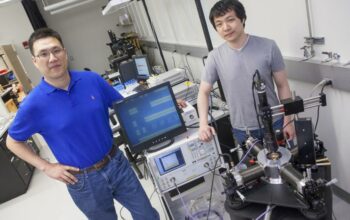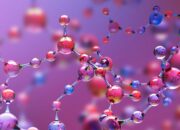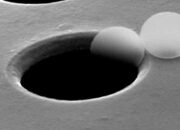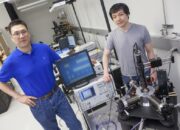The inquiry into whether molecules of each person differ opens a captivating exploration into the complex interplay between biology, chemistry, and individuality. At first glance, it may appear that we are all fundamentally similar; after all, human beings share 99.9% of their DNA. However, beneath this surface lies an intricate web of molecular diversity that warrants deeper consideration.
To comprehend how molecules can vary among individuals, it is essential to delve into the basic building blocks of life—cells and their constituent molecules. Each human body is an amalgamation of approximately 37.2 trillion cells, each housing a plethora of biomolecules such as proteins, lipids, nucleic acids, and carbohydrates. These biomolecules not only serve structural and functional purposes but also contribute to the unique biochemical signature of each individual.
At the heart of molecular differentiation is DNA, the blueprint for biological construction. Though our genetic sequences might be remarkably similar, the expression of these genes can vary drastically among individuals. This phenomenon, known as gene expression, is influenced by a host of factors, including environmental conditions, lifestyle choices, and even epigenetic modifications. Epigenetics, the study of heritable changes that affect gene activation without altering the underlying DNA sequence, illustrates a pivotal means through which individuals can exhibit distinct metabolic profiles and responses to stimuli.
Furthermore, proteins, which are synthesized based on genetic information and serve as the workhorses of the cell, also exhibit variability. Two individuals may possess the same gene, yet polymorphisms—variations in the genetic sequence—can lead to the production of proteins that function differently. These disparities can manifest in a myriad of ways, affecting metabolism, immune response, and susceptibility to diseases. The realm of proteomics brings to light this molecular divergence, enabling researchers to catalog and analyze the myriad proteins present in different biological contexts.
Consider the realm of the microbiome, the consortium of microorganisms residing within and on each human body. The composition of this microbial population is as unique as a fingerprint, influenced by diet, environment, and even socio-economic factors. The microbial molecules produced via metabolism can profoundly affect host physiology, further accentuating how individual biochemistry is not merely a reflection of human genetics but also an intricate interplay with one’s unique set of microbes. The revelations stemming from this field of research underscore the assertion that each person’s biochemical makeup is indeed a distinct symphony of molecular interactions.
Moreover, advancements in metabolomics, the study of small molecules (metabolites) in cells and biological systems, have underscored the existence of significant metabolic diversity among individuals. These metabolites—the end products of cellular processes—can reflect one’s nutritional intake, metabolic state, and even health conditions. For instance, variations in the metabolism of certain foods can lead to different responses to dietary interventions, elucidating why one person may thrive on a particular diet while another may struggle to adapt. This underscores the exquisite sensitivity of molecular systems to both internal and external influences.
As we probe the question of molecular differentiation further, we encounter the realm of antibodies and the immune system. The adaptive immune system relies on a vast repertoire of antibodies—proteins designed to recognize and neutralize foreign substances. Individual differences in the structure and function of antibodies can profoundly impact immune responses. Genetic variations in the immunoglobulin genes produce a fascinating array of antibody profiles, influencing susceptibility to infections and the efficacy of vaccines. Each individual, therefore, carries a unique fingerprint of molecular defenses that can alter the landscape of health and disease.
In addition to these biological aspects, lifestyle factors such as stress, physical activity, and even social interactions wield considerable influence over our molecular makeup. The concept of allostasis refers to the body’s ability to achieve stability through change in response to chronic stressors. This adaptability involves complex biochemical networks that alter metabolic pathways and modulate genetic expression. Consequently, an individual’s stress response can engender a distinctive molecular environment, further contributing to the narrative of personal uniqueness.
As the tapestry of human individuality unfolds, it becomes clear that molecules serve as a window into the uncharted territories of human biological variation. The implications of differing molecular constructs are vast, extending to personalized medicine, which aims to tailor medical interventions based on an individual’s unique molecular profile. This burgeoning field holds the promise of revolutionizing healthcare by offering treatments that are finely tuned to the genetic and molecular idiosyncrasies of each person.
Ultimately, the quest to understand the molecular distinctions among individuals invites a re-evaluation of our conventional understandings of identity and health. Each person is not merely a compilation of genetic material; rather, they represent a unique biochemical entity, an intricate tapestry woven from an array of molecular threads. By recognizing and appreciating this molecular diversity, we open new avenues for research, healthcare, and ultimately, a more nuanced understanding of what it means to be human in an exceptionally varied biological landscape.

